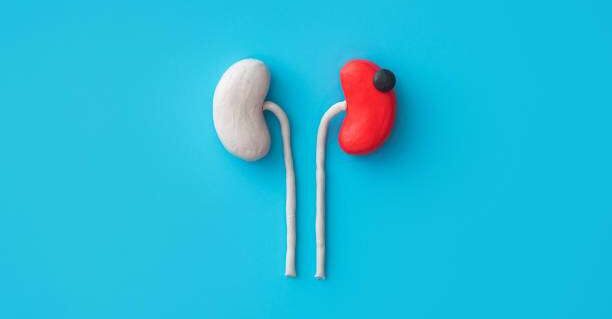Table of Contents
ToggleIntroduction
From the discomfort to the potential complications they may lead to, urinary tract infections (UTIs) a common ailment can impact individuals with conditions like diabetes or kidney issues more severely. Recognizing the symptoms of a UTI early on is crucial for prompt treatment and prevention of further complications. In this comprehensive guide, we will delve into the world of UTIs, exploring how to identify these infections and take steps to manage them effectively.
Understanding the Basics of Urinary Tract Infections
What is a UTI?
The urinary system, which includes the kidneys, ureters, bladder, and urethra, is where an infection occurs and is referred to as a urinary tract infection (UTI). A bladder infection, which is also known as cystitis, is the most prevalent type of UTI.
Essential UTI Gummy
- Prevents and Protects from UTIs
- Relieves Pain and Burning
- Full-Spectrum Urinary Tract Support
- Supports Healthy Bladder Function
- Convenient and Tasty Gummies
Empower your urinary health with UIT Gummy. Enjoy relief and protection today!
Common Causes of UTIs
- Bacterial Infection: The most common cause of UTIs is the bacterium Escherichia coli (E. coli), which is typically found in the digestive system.
- Risk Factors: Individuals with conditions like diabetes or kidney issues have a higher risk of developing UTIs due to weakened immune systems and other factors.
- Sexual Activity: Bacteria can enter the urinary tract through sexual intercourse, causing an increase in the risk of infection.
Signs and Symptoms of a UTI

Early identification of UTI symptoms is key to seeking timely medical intervention. Some of the common signs and symptoms of a UTI may be:
- Pain or Burning Sensation: Discomfort or burning during urination is a common symptom of a UTI.
- Frequent Urination: Individuals may experience an urgent need to urinate more frequently than usual.
- Cloudy or Bloody Urine: Changes in urine color or clarity can indicate the presence of an infection.
- Pelvic Pain: If you experience pain in your pelvis or lower abdomen, it might indicate a UTI.
- Fever or Chills: Some individuals with UTIs may also experience fever or chills as a result of the infection.
Home remedies for treating UTI

- Drink plenty of water: To assist remove bacteria from the urinary tract and stop the illness from getting worse, drink lots of water and remain hydrated. Experts recommend drinking eight glasses of water or more every day.
- Try cranberry juice or supplements: Cranberries contain compounds that may prevent bacteria from adhering to the urinary tract walls, helping to treat and prevent UTIs. Unsweetened cranberry juice or cranberry supplements are recommended.
- Take probiotics: Probiotics can help restore the balance of good bacteria in the urogenital system, which may reduce the risk of recurrent UTIs. Look for probiotic supplements or foods like yogurt, kefir, and kombucha.
- Increase vitamin C intake: Vitamin C may help acidify the urine and create an environment less hospitable to bacteria that cause UTIs. Vitamin C supplements or foods high in vitamin C like citrus fruits, bell peppers, and broccoli may be beneficial.
- Avoid bladder irritants: Steer clear of foods and drinks that can further irritate the bladder when you have a UTI, such as caffeine, alcohol, and acidic foods.
- Wipe from front to back: This helps prevent the spread of bacteria from the rectum to the urethra, reducing the risk of UTIs.
- Use a heating pad: Applying a heating pad to the lower abdomen can help relieve discomfort and pain associated with a UTI.
It’s important to note that while these home remedies may provide relief, they should not replace antibiotic treatment prescribed by a doctor, especially for more severe or recurrent UTIs. Seeking medical attention is crucial to properly diagnose and treat a UTI.
Understanding the Impact on Specific Conditions
For individuals with conditions like diabetes or kidney issues, the presence of a UTI can exacerbate existing health concerns. UTIs in these populations may present with additional symptoms or complications, such as:
- Increased Risk of Kidney Infections: Individuals with compromised kidney function are at a higher risk of developing kidney infections if a UTI is left untreated.
- Difficulty in Managing Blood Sugar Levels: UTIs can disrupt blood sugar control in individuals with diabetes, leading to fluctuations in glucose levels.
- Delayed Healing: Chronic conditions can impact the body’s ability to fight off infections, prolonging the duration of UTI symptoms.
Diagnosis and Treatment Options

Seeking Medical Evaluation
If you experience symptoms of a UTI, it is important to seek medical evaluation for an accurate diagnosis. Healthcare providers may perform the following tests to confirm a UTI:
- Urinalysis: A urine sample is tested for the presence of bacteria, white blood cells, or other indicators of infection.
- Urine Culture: In some cases, a urine culture may be performed to identify the specific type of bacteria causing the infection.
- Imaging Studies: Additional imaging tests like ultrasound or CT scans may be ordered to assess the extent of infection, especially in complex or recurrent cases.
Treatment Strategies for UTIs
- Antibiotics: The primary treatment for UTIs is a course of antibiotics, which target the underlying bacterial infection.
- Pain Management: Over-the-counter pain relievers may help alleviate discomfort associated with UTI symptoms.
- Hydration: Drinking plenty of water can help flush out bacteria from the urinary system and prevent recurrent infections.
- Follow-Up Care: Individuals with chronic conditions may require additional monitoring and follow-up care to manage UTIs effectively.
Maintaining Urinary Health

Prevention plays a crucial role in reducing the risk of UTIs, especially for individuals with conditions that increase susceptibility to infections. Here are some tips to promote urinary health and prevent UTIs:
- Stay Hydrated: Drinking an adequate amount of water helps flush out bacteria and toxins from the urinary system.
- Practice Good Hygiene: Proper hygiene, including wiping from front to back after using the bathroom, can prevent the spread of bacteria.
- Urinate Regularly: Emptying the bladder regularly can help prevent the buildup of bacteria and reduce the risk of infection.
- Avoid Irritants: Limiting the consumption of potential bladder irritants like caffeine and alcohol can help maintain urinary health.
Conclusion
In conclusion, recognizing the signs and symptoms of a urinary tract infection is essential for individuals, especially those with conditions like diabetes or kidney issues. Early detection and prompt treatment can help prevent complications and promote overall urinary health. By understanding the basics of UTIs, identifying common symptoms, seeking timely medical evaluation, and adopting preventive strategies, individuals at risk can better manage UTIs and minimize the impact on their health. Remember, staying informed and proactive is the key to addressing UTIs effectively and maintaining optimal urinary health.
Remember, your health is in your hands—stay vigilant, stay informed, and stay healthy.

